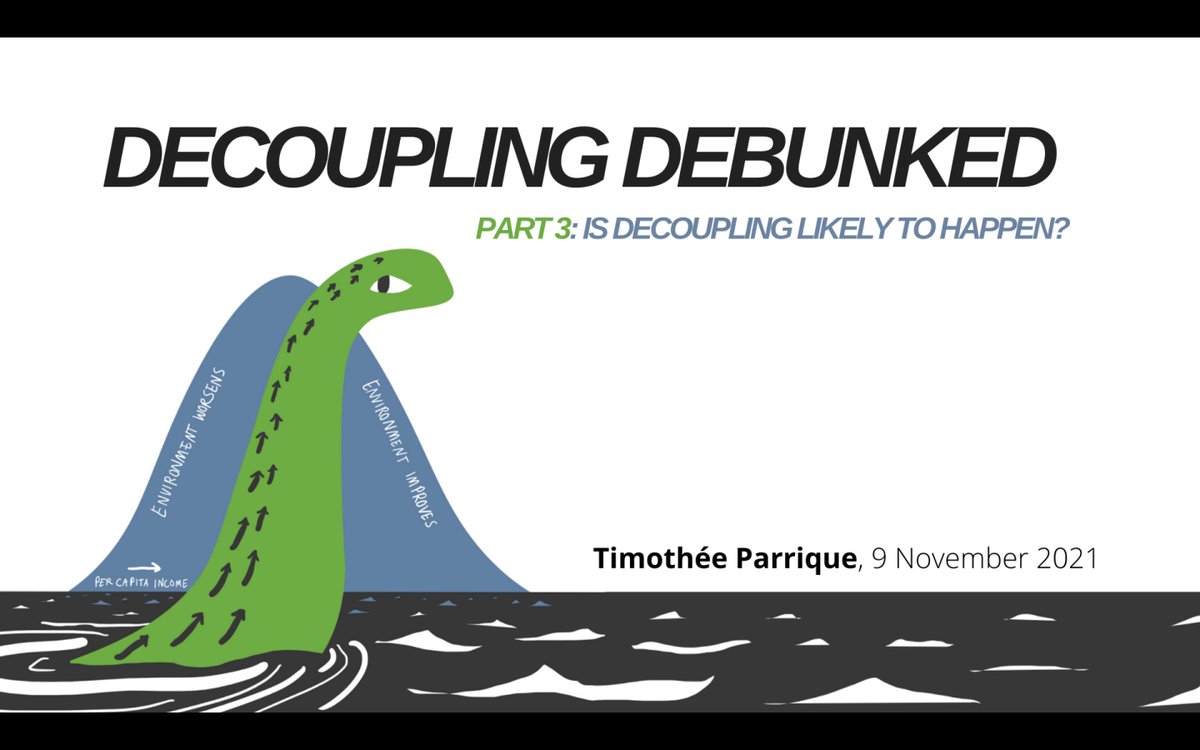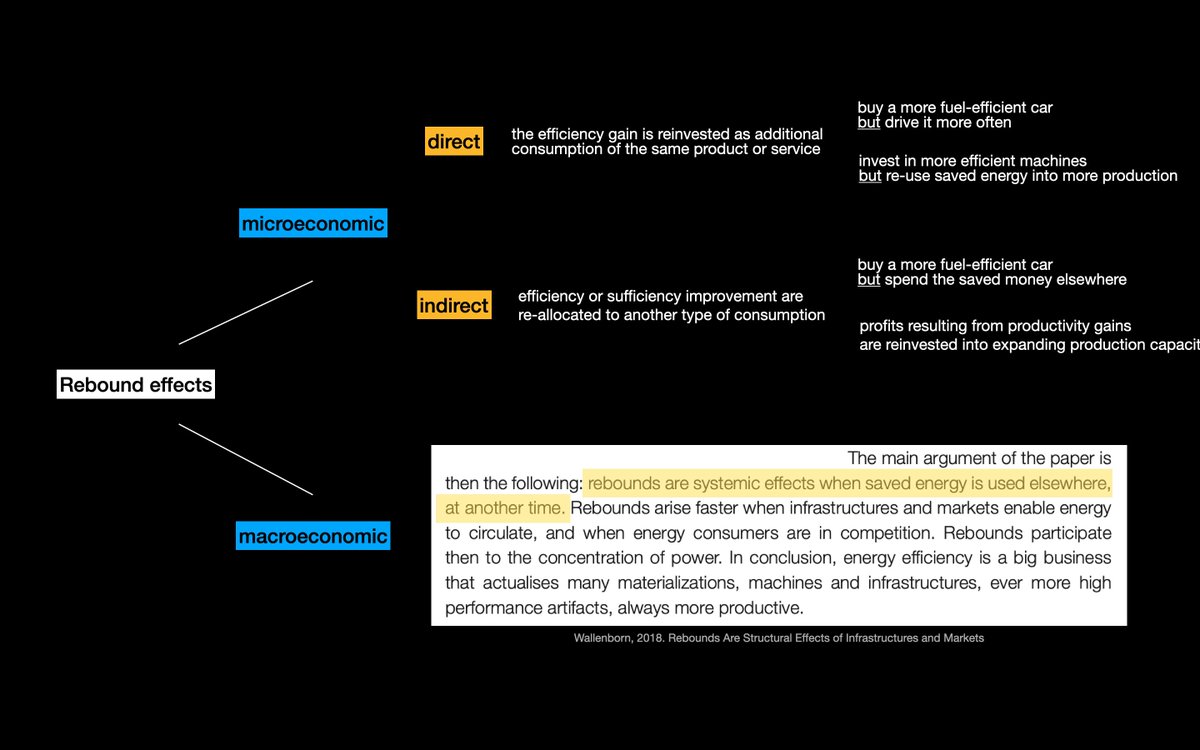
Is decoupling likely to happen? To find out, here is a thread summary of my third and final lecture for The Norwegian Society for the Conservation of Nature.
(Spoiler alert: the answer is no).
THREAD/
(Spoiler alert: the answer is no).
THREAD/

1/ The first limit to greening growth has to do with declining rates of Energy Returns on Energy Invested (EROI), meaning that it takes more and more energy to obtain energy. 

2/ And for the economists out there who will argue that the energy sector is not that important because it’s only a small part of GDP, read this paper. 

3/ Capitalism is a like a trampoline: efficiency gains do not solve the problem if they rebound into more resource use and emissions. 

9/ TECHNOLOGY, the joker card for all green growth aficionados. Grow now, figure out ways to clean up later. But... 

10/ But even that card quickly runs out of steam. First, not all innovation is eco-innovation. New technologies can also exacerbate old problems or even create new ones. 

11/ Second limit: eco-innovation is not enough. We also need “exnovation,” that is for new, cleaner technologies to replace old ones. This is not always happening. 

13/ So, put these five limits together, plus the fact that there has been barely any decoupling so far, and you get one solid insight: growth can’t be greened. 

14/ If you want to watch the whole lecture, it’s here:
END THREAD/
END THREAD/
• • •
Missing some Tweet in this thread? You can try to
force a refresh











